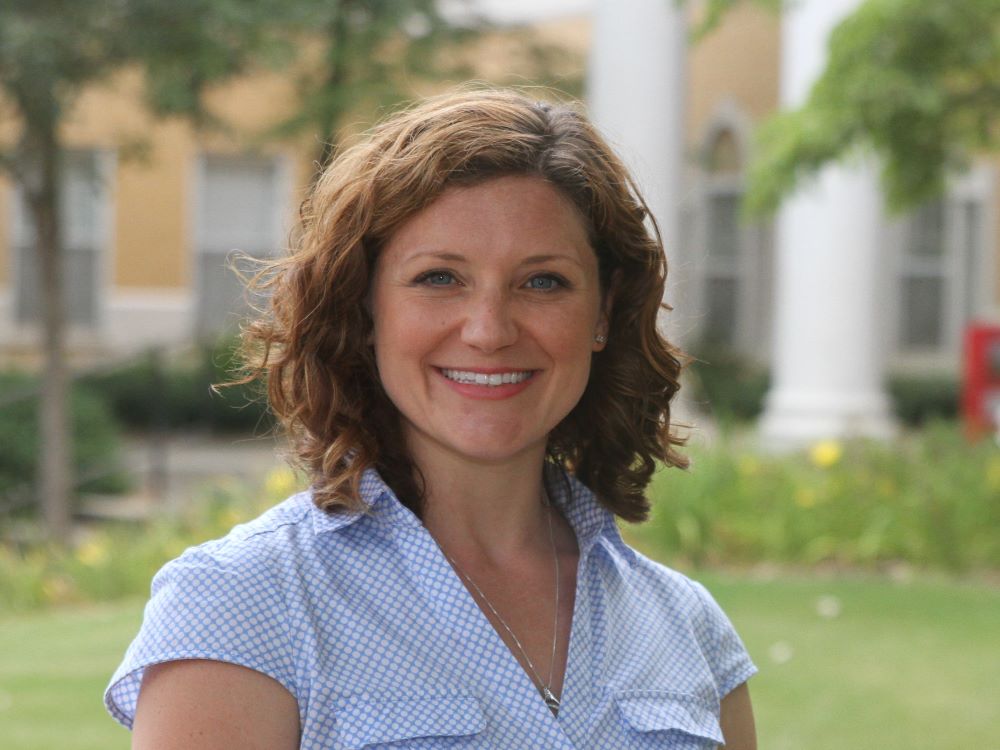Effective Diabetes Prevention Program Led by Georgia CTSA Leader

"Especially during the COVID-19 pandemic, our Diabetes Prevention program has become a lifeline for many Georgians. Participants look forward to this session as a way they can connect with others at a time when they're missing out on that social connection. It's helping them take stock in their nutrition and health behaviors. Our program has become a source of hope and encouragement for many. They're making positive health behavior changes even during this public health emergency," says Dr. Ali Berg, PhD.
As Principal Investigator, Alison (Ali) Berg, PhD, RDN, LD, Associate Professor and Extension Nutrition and Health Specialist, University of Georgia, College of Family and Consumer Sciences, and Georgia CTSA Community Engagement Committee Member, is leading an effective Diabetes Prevention program. Prediabetes and diabetes cost Georgia $9.9 billion annually, and those costs are likely higher in the wake of COVID-19. This study is a collaboration with the UGA College of Family and Consumer Sciences and the UGA College of Education and Cooperative Extension. Since the start of the pandemic in March 2020, this program has helped 98 Georgians lose approximately 500 additional pounds and log nearly 3,000 hours of physical activity to improve their health as the program has pivoted to virtual delivery. The 12-month lifestyle change program began in Fall 2019 and has expanded to 13 counties, including 6 rural counties in Georgia.
Dr. Berg explains, "In the Georgia CTSA, part of my role is to represent UGA Cooperative Extension. We do community education and consultation to bring the resources of the university to the community of Georgia. One way we do that is with Health and Wellness programs including this Diabetes Prevention program. Our goal is to deliver the National Diabetes Prevention program, an evidence-based intervention that has been shown to reduce the risk for developing diabetes by more than 50%. Like many other evidence-based interventions, the uptake in the community needs to be greater. We aim to spread this program throughout more counties in Georgia, increase the number of people delivering the intervention, and increase participation. Cooperative Extension provides a strong infrastructure for that intervention to be delivered."
This study is exploring the implementation of this program within Cooperative Extension to understand how it functions as an intervention, what are the barriers to delivering this program, and the impact on health outcomes including weight, nutrition, eating behaviors, health-related quality of life and physical function - how well a person can get up from a chair and how well can they move around. How well people can do the basic movements of their life is important for people to stay independent, in their homes, and to live healthy and productive lives.
"We've been able to support the participants in this program despite the public health emergency and find ways to connect when the program had to move from being in-person to virtual. Zoom offers both a calling and a video feature," comments Berg. "In some communities, everyone in the group connects through Zoom on video, while other groups participate through conference calls because they either don't have broadband internet access or they prefer connecting via the phone. We've helped people participate via video calls as much as possible because we know that seeing other people is helpful when working through these health behavior changes."
While Berg and her faculty team received an initial Presidential Interdisciplinary Seed Grant from the University of Georgia for their research proposal, Creating a Healthier Georgia through Diabetes Prevention, the Georgia CTSA has provided additional support to Berg to expand the Diabetes Prevention program and work with other members of Georgia CTSA Community Engagement in additional projects to improve health across Georgia. During the pandemic, Berg and her Georgia CTSA Community Engagement colleagues hosted a webinar, Community Engagement in the Era of COVID-19: Opportunities, Challenges, and Lessons Being Learned.
"At the core, we are about community education, engagement programs, and supporting our community. During the COVID pandemic, it wasn't an option to not continue this program for our participants. Since it's a year-long intervention, we had to determine the best ways to deliver this program and continue helping our participants improve their health," adds Berg.
Georgia CTSA's Community Engagement program is a core component of a collaborative effort between Emory University, Morehouse School of Medicine (MSM), Georgia Institute of Technology (Georgia Tech), and University of Georgia (UGA). The program improves the way biomedical research is conducted and disseminated throughout Georgia and across the country. It works to unite existing academic-community research partnerships, facilitate community input into university research, and to increase health research in community settings that is both responsive and relevant to the health needs of the community.
The Georgia CTSA is a statewide partnership between Emory, MSM, Georgia Tech, and UGA and is one of 60 in a national consortium striving to improve the way biomedical research is conducted across the country. The consortium, funded through the National Center for Advancing Translational Sciences (NCATS) and the National Institutes of Health's Clinical and Translational Science Awards, shares a common vision to translate laboratory discoveries into treatments for patients, engage communities in clinical research efforts, and train the next generation of clinical investigators. For more information, visit www.GeorgiaCTSA.org.